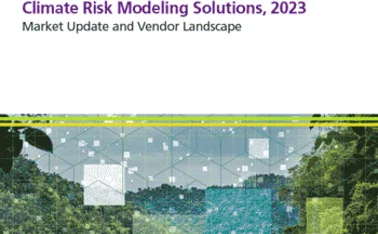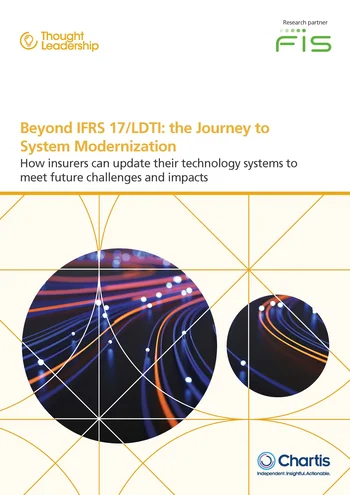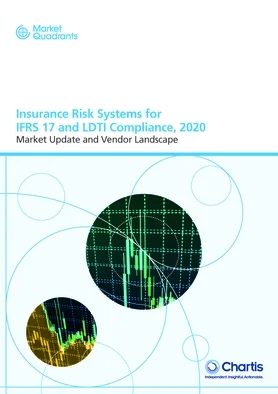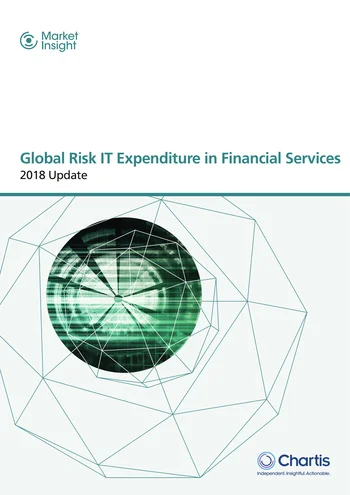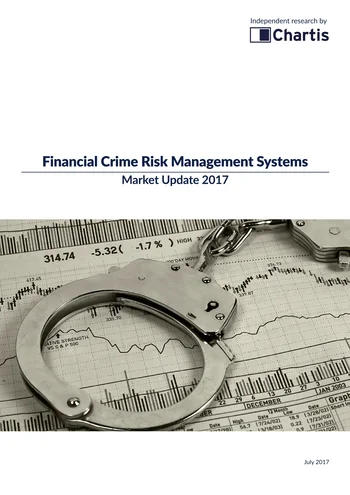General insurance
Achieving Operational Resilience in the Insurance Sector: Lessons from COVID-19
This collaborative report investigates the ‘layers’ of operational resilience in insurance firms, and argues that the vital lesson from the pandemic is to prepare for a broad range of future operational scenarios, rather than relying on retrospective…
Vendor Analysis - Wolters Kluwer (CCH® Tagetik): IFRS 17 and LDTI Solutions, 2022
This Vendor Analysis summarizes the key theses in Chartis' IFRS 17/LDTI quadrant report, and takes a detailed look at Wolters Kluwer's quadrant positioning and scoring, and Chartis’ underlying opinion and analysis.
Insurance and Cyber Security in GRC
This report, developed in collaboration with SAP, is the second in a series examining the crossover between cyber and GRC in different industry sectors.
IFRS 17 and LDTI Solutions, 2022: Market Update
Five years on from the issuance of IFRS 17, Chartis is assessing the current state of play. To support this analysis, and in collaboration with Insurance Post, we have conducted a survey to examine global trends and dynamics in key implementation areas…
IFRS 17 and LDTI Solutions, 2022: Market Update and Vendor Landscape
Five years on from the issuance of IFRS 17, Chartis is assessing the current state of play as insurers work toward the deferred 2023 implementation date. For our 2022 industry report, we re-evaluate the compliance challenges we have previously identified…
The death of insurasaurus? Why complacent and out of touch insurers must overhaul their business, and their image, to survive
Like other corporate dinosaurs, many insurers face extinction if they don’t become less reliant on old ways of doing things and robust barriers to entry. But by upgrading their tech and learning from other industries they can avoid the fate of their…
Beyond IFRS 17/LDTI: the Journey to System Modernization
This report, a collaboration between Chartis and FIS, examines the impact of IFRS 17 and LDTI on the insurance industry, giving an overview of the changes observed in the market, the industry’s evolving response, and how firms should prepare for the…
The Heart of IFRS 17 Compliance
This report examines the trends and dynamics around IFRS 17 compliance, examining why long-term success for insurance firms requires a heterogeneous, flexible and scalable data-management framework.
Vendor Analysis: Oracle Financial Services - Insurance Risk Systems for IFRS 17 and LDTI Compliance, 2020
This Vendor Analysis is based on the Chartis quadrant report 'Insurance Risk Systems for IFRS 17 and LDTI Compliance, 2020: Market Update and Vendor Landscape' (published in June 2020). This section summarizes the key theses in that report; subsequent…
Cyber Risk Quantification Solutions, 2020: Market Update and Vendor Landscape
This report updates our view of the market for CRQ solutions, highlighting the major trends and developments, and assessing the vendor landscape.
Achieving Effective IFRS 17 Reporting
In this report, created in collaboration with Workiva, we focus on the challenges associated with IFRS 17 reporting, and consider solutions to those challenges from the perspectives of accounting policy and technology implementation. And in highlighting…
Insurance Risk Systems for IFRS 17 and LDTI Compliance, 2020: Market Update and Vendor Landscape
In this report we consider insurers’ evolving technology requirements for compliance with IFRS 17 and its US counterpart LDTI. As part of our analysis we also examine the core principles of LDTI, and the main areas in which it differs from IFRS 17…
Insuring the weather: modeling the complexities of climate change
Extreme weather makes forecasting and quantifying insurance losses harder, and ‘cat’ models struggle to predict events more extreme than those in the past. As regulators demand more action, dynamic ‘earth system’ models offer a better way to anticipate…
Reinsurers’ IFRS 17 struggles are a reminder that one size does not fit all
The IASB issued IFRS 17 in a bid to standardize insurance contract accounting, but reinsurance firms, because of their particular idiosyncrasies, will struggle to comply. Unless the IASB makes significant modifications to the standard, reinsurers…
